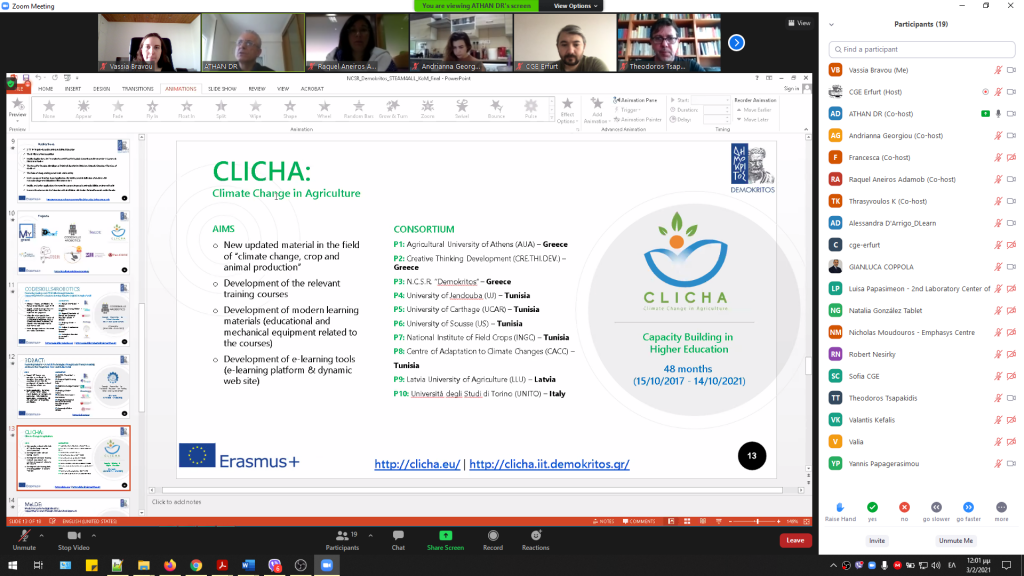17.03.21
The coastal zones are the most vulnerable area to indirect and direct effects of climatic change. The indirect effects are related to the growing demography along them as well as to anthropogenic activities. Indeed, the population exodus from inside land is highly increased as consequence of hard climatic condition (high temperature level and very low rainfall) and the lake of access to water mainly in summer period. The direct effects are related to the change of climatic parameters, mainly the rainfall and the temperature, as well as to the sea level high fluctuation. It is evident that the indirect effects will result in a high pressure on groundwater resources both in terms of quantity and quality. Indeed, the urban water needs, and the crop consumptions are increased not only by the temperature increase and the rainfall decrease but also by the high demand in food and water to satisfy a population in constant increase. The direct effects are related to the scarcity of rainfall, the increase of water evaporation and of the sea level. The rainfall and water evaporation increase will reduce the groundwater recharge and increase the water irrigation requirement. The sea level increase will destroy the lands along the shoreline and will accelerate the sea water intrusion in the land; an inversion of hydraulic gradient may occur as result of the groundwater level decrease, due to the reduction of the recharge and to the increase of pumped rates.
These issues, supported by case studies and scientific research, were presented at the webinar organized by the University of Carthage – National Institute of Agronomy of Tunisia in the framework of the Climate Change in Agriculture project.
Coastal Erosion & Climate Change
Risks and aggravation factors affecting water resources in

